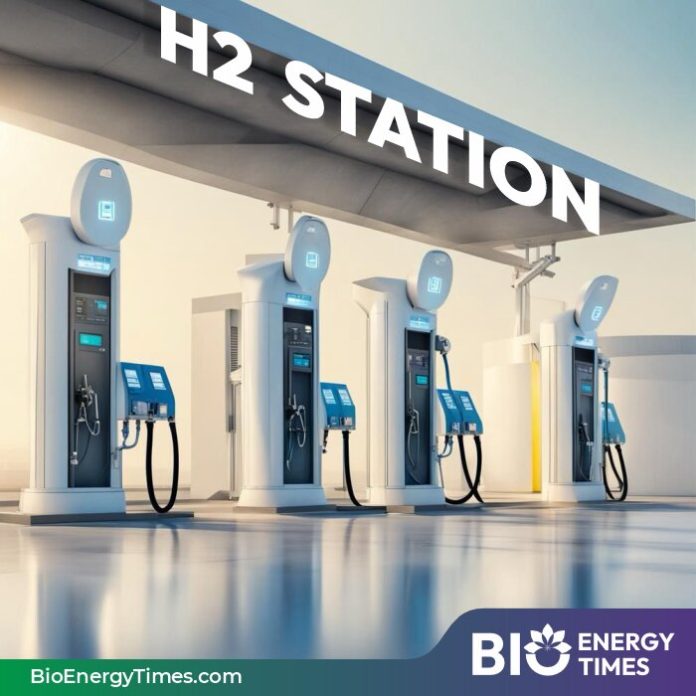In a significant development aligned with Indonesia’s clean energy goals, HDF Energy (Hydrogène de France) signed two pivotal agreements during French President Emmanuel Macron’s state visit to Indonesia. These agreements mark a major advancement in the company’s plans to establish Renewstable® green hydrogen power plants across the archipelago.
On May 28, a tripartite Memorandum of Understanding (MoU) was formalized between HDF Energy, Indonesia’s state-owned electricity provider PLN, and PT SMI, a government-owned infrastructure financing firm. The signing took place at the Presidential Palace in Jakarta, witnessed by Presidents Emmanuel Macron and Prabowo Subianto.
Simultaneously, HDF Energy entered into a separate agreement with the Provincial Government of East Nusa Tenggara. This second MoU underscores the regional government’s support for HDF’s initiatives and further paves the way for the deployment of green energy infrastructure in one of Indonesia’s high-potential provinces.
Signing the MoUs were Damien Havard, CEO of HDF Energy; Reynaldi Hermansjah, President Director of PT SMI; and Darmawan Prasodjo, President Director of PLN.
Backing 23 Green Hydrogen Projects with €2.3 Billion Investment
The agreement with PLN and PT SMI is part of a broader effort that saw six major deals concluded between French companies and Indonesian counterparts during Macron’s visit. These partnerships were facilitated with support from French Minister of Economy, Finance and Industrial and Digital Sovereignty, Éric Lombard.
Under this collaboration, the parties aim to explore and implement financing solutions for 23 Renewstable® projects currently in development throughout Indonesia. Together, these projects represent a planned investment of €2.3 billion and are central to Indonesia’s newly launched national roadmap for hydrogen and ammonia. This roadmap places hydrogen at the core of future electricity generation strategies.
Strategic Focus on East Nusa Tenggara
Of the 23 projects, eight are planned in East Nusa Tenggara, a region identified as a strategic hub for green energy deployment. The MoU signed with the provincial government will enhance local collaboration and accelerate the implementation of these projects.
Renewstable® power plants are designed to combine intermittent renewable sources such as solar or wind with on-site storage using green hydrogen. This integration ensures a steady supply of clean electricity, offering a sustainable alternative to diesel-powered generation on remote islands. In addition, surplus green hydrogen from these plants may be used to decarbonize maritime transport in the region.
A foundational agreement to that effect was signed in April 2025 between HDF Energy, PLN, and PT ASDP Indonesia Ferry, initiating a maritime decarbonization program. High-capacity fuel cells for both the energy and maritime initiatives will be manufactured at HDF’s facility in Bordeaux, France.
Driving Indonesia’s Energy Transition
These recent agreements mark a significant step forward for HDF Energy in Southeast Asia, bolstering its presence in Indonesia and supporting the country’s shift toward sustainable energy. They also align with national ambitions to build a resilient hydrogen economy and reduce reliance on fossil fuels.
Damien Havard, CEO of HDF Energy, remarked: “This milestone reflects the strong relevance of our technology in tackling the electrification challenges of isolated regions. Our involvement in this State visit highlights both the French government’s dedication to the global energy transition and its backing of hydrogen innovation led by French companies.”
President Emmanuel Macron noted: “France stands as a committed partner in the energy transition. Out of a pledged €500 million, €450 million has already been disbursed. I’m pleased that today, we’ve formalized key projects in the solar and hydrogen sectors.”
Echoing this sentiment, President Prabowo Subianto stated: “We have agreed to take our partnership further by adopting a joint vision for Indonesia–France relations looking ahead to 2050. This includes deepening our cooperation in strategic areas such as energy.”















